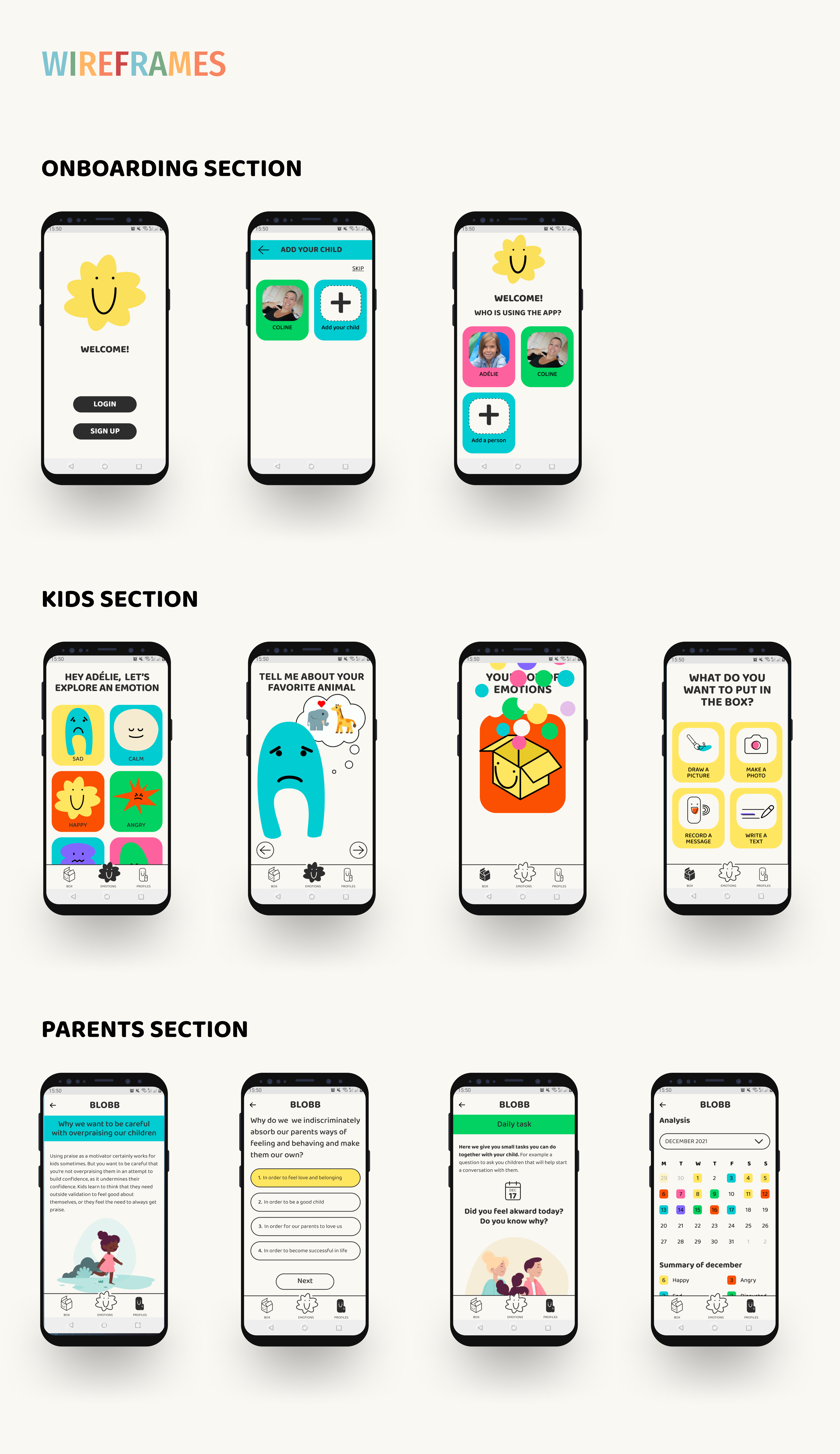Blobb
This project was carried out from start to finish with the start-up Stark ins Neue.
🏆 With this Blobb project, we won the first UX UI prize at the Hackshow Berlin October 2021.

For this project, we had the choice to create our group and to choose among 10 companies/start-ups. With Lynn and Georg, my classmates, we chose Stark ins Neue, which at first sight seemed to be the most creative project.
Stark ins Neue is a young start-up and it fosters resilience in children. To do this, they want to build a low threshold solution for children aged 5–12 years by using child-friendly digital solutions. They do not want to provide children with another addictive game, but to build a digital buddy that will give them impulses and guidance throughout the day — while it encourages real-life behavior and reflection of their own emotions, tasks, and relations with others.
Problem statement
After a meeting with our stakeholder, several interviews, and findings from our survey, we have started to gather all the insights and analyze them. We noticed that initially, it would be difficult to develop a concept for children aged 5 to 12. Simply because between these 2 ages, the understanding is so different! It would be wise to develop an adaptive product, but for a first version, let’s concentrate on a first age group, namely 5–7 years.
We also decided with Stark ins Neue, that the application would be useful for children and parents. So we have two main user groups. We came up with the following problem statements:
- Children need more guidance from both their parents and educational professionals in becoming more aware of their emotions because it will help them become more resilient throughout life and help them building stronger relationships.
- Parents need more guidance from educational professionals for a better understanding of their children emotions because they can more easily detect and prevent emotional struggles in their kids lives.
User persona
As mentioned above, the application will be used by children as well as parents. So we have two user personas, the child being the main one.
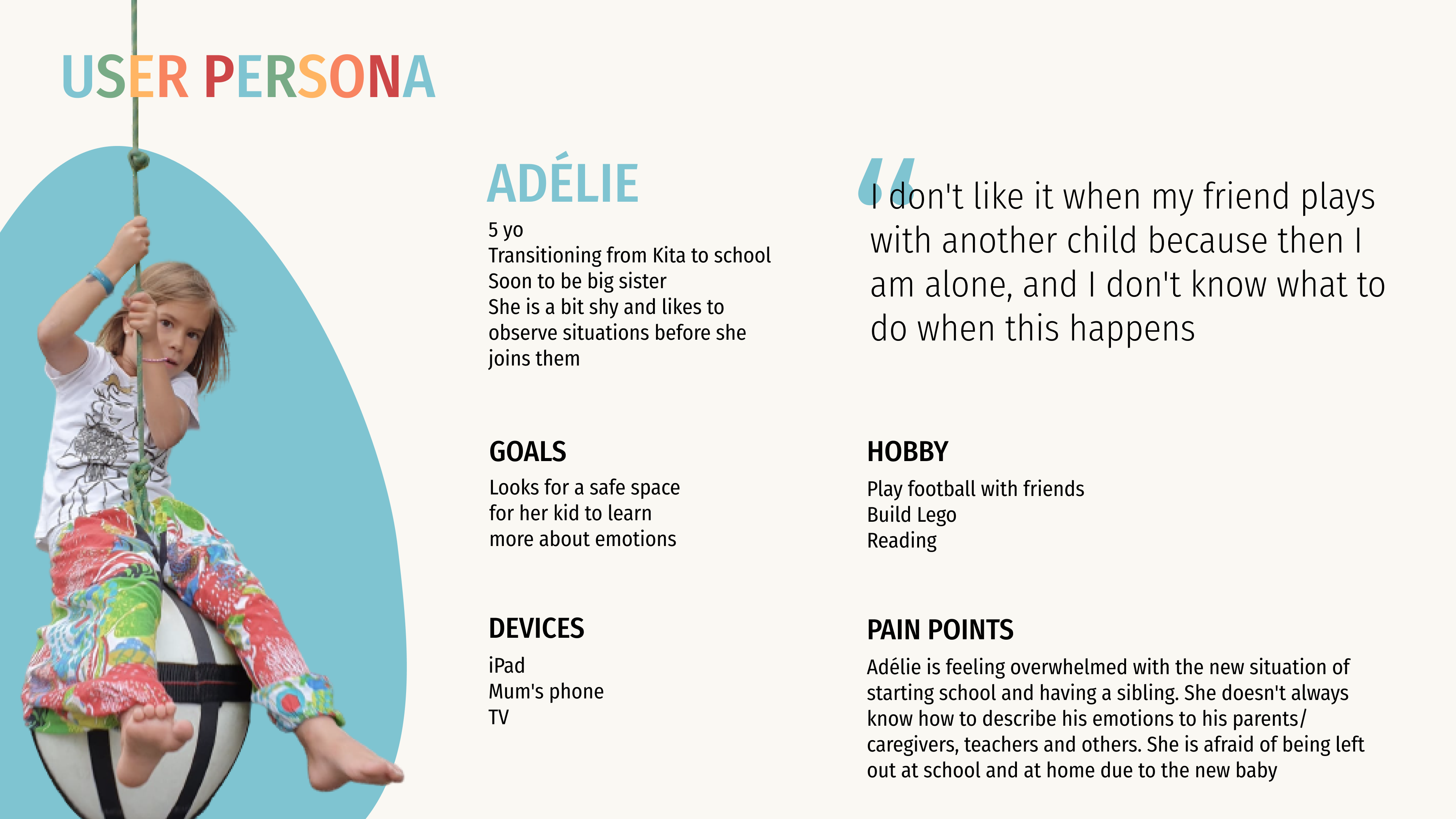
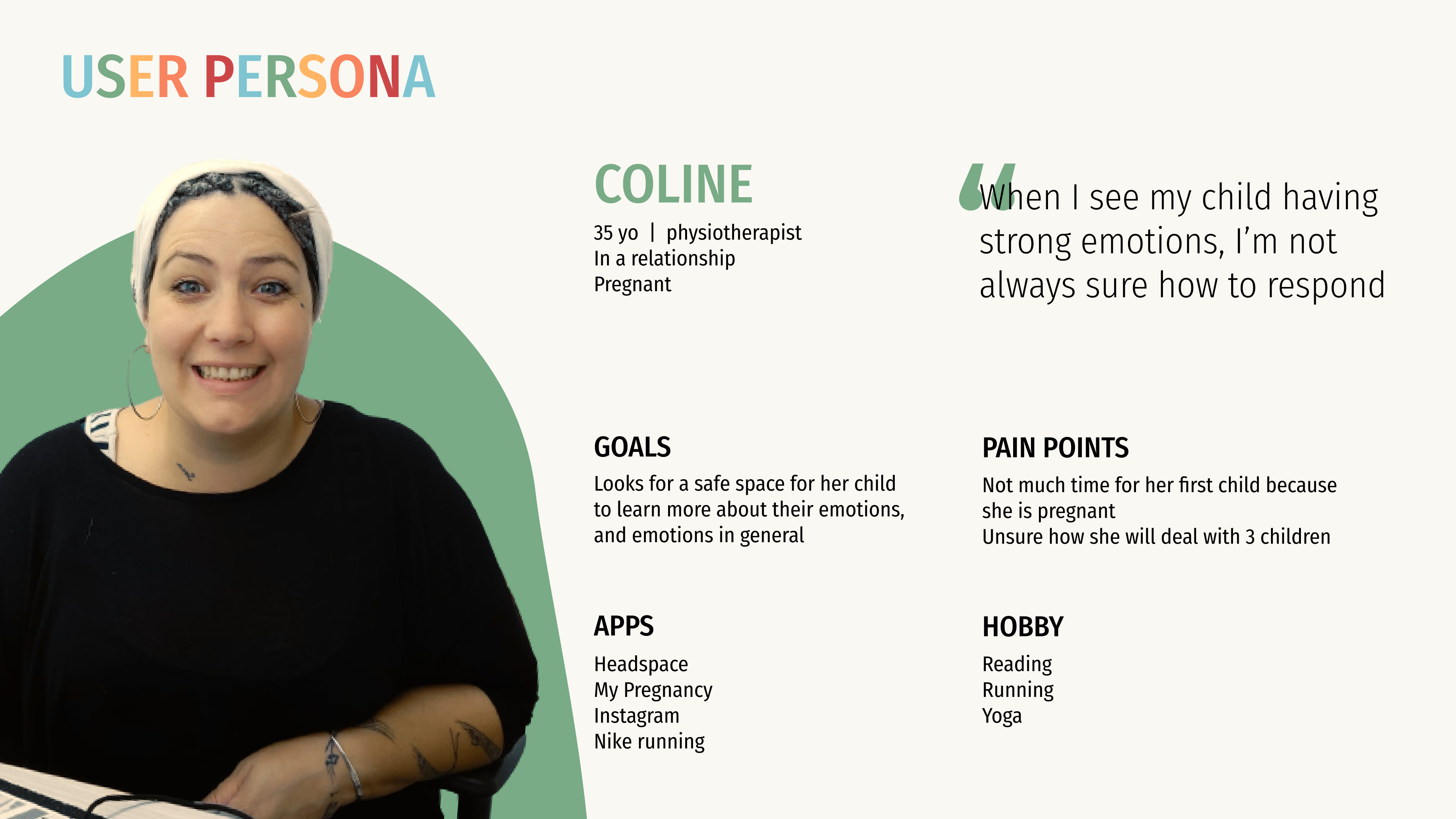
Role & Responsibility
We were with Lynn and Georg, three people working in this group. The young start-up company Stark ins Neue, which initiated the project, regularly took part in our decision-making.
Scope & Constraints
The time frame for this project was two weeks. We have decided with Stark ins Neue to create a Minimum Viable Product, thus some features won’t be implemented. Although, we agreed to deliver a prototype of at least 2 user flows.
Process
Empathize
After our own research, we needed to know whether our assumptions were verified or not. We conducted a survey and several interviews with children and parents. Here are the insights we found out:

Competitors analysis
We quickly observed what is being done today on applications for children, and we found 3 main categories:
- listening applications such as Spotify, Youtube
- applications where the child can be creative
- interactive applications where there is an exchange and follow-up
Our application will combine these 3 features.
MoSCoW
Due to the time frame, we quickly came to define the features we want to implement in the first version of the application. Other, more dispensable, features can be integrated in the future. For this first version we decided to focus on:
- a follow-up of the child’s mood
- Emotion box
- a parent section and a child section
- Onboarding section
- Interactive learning section for the children
Moodboard
The moodboard allowed us to define an initial graphic direction. We saw that, at the height of children, the presence of a group of friends is often represented. We were also inspired by the wheel of emotions.
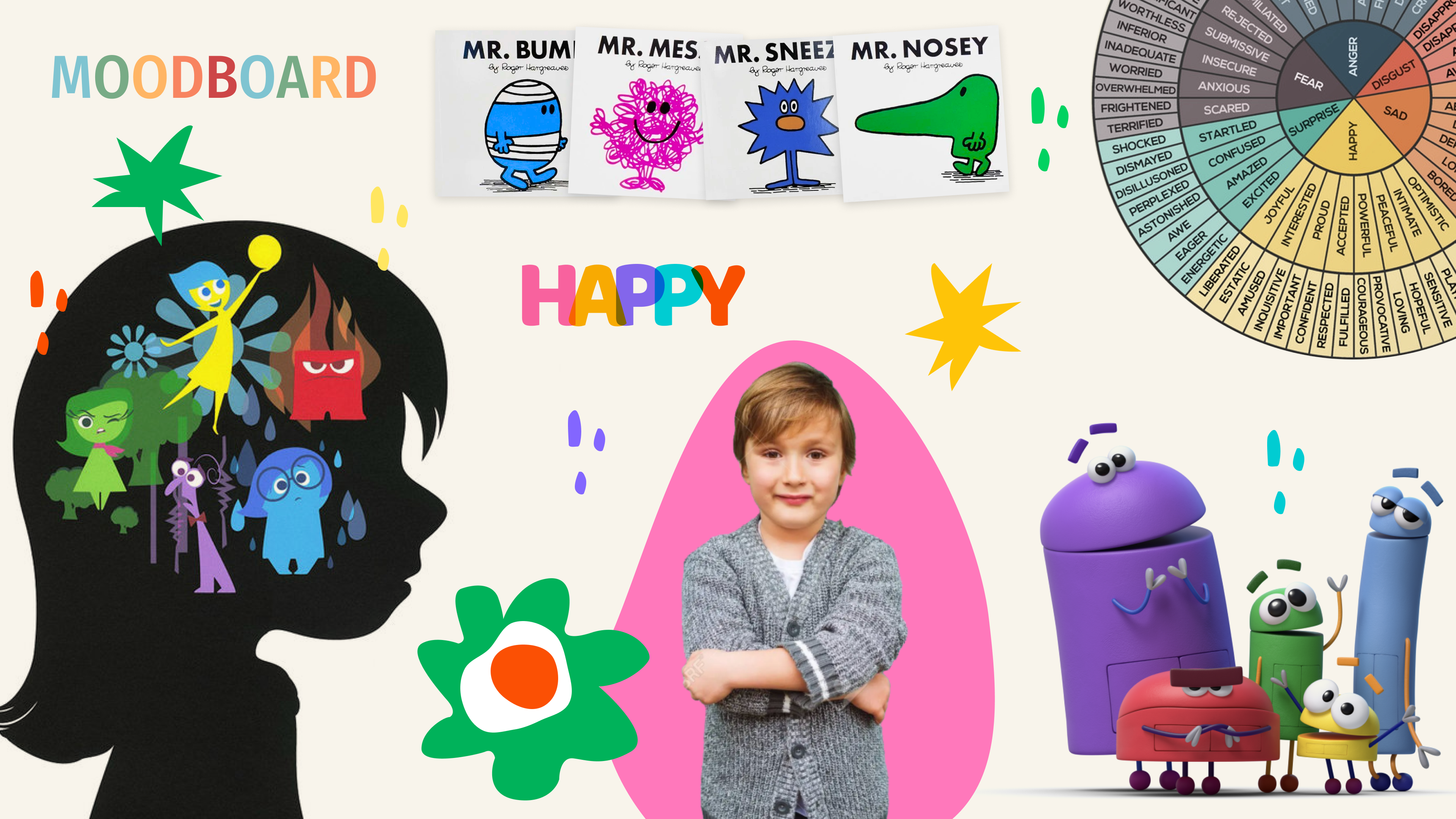
Style tile
In the style tile, you can see the different characters we have decided to use within our application. We did a card sorting, asking several people/children, which emotion they linked with which colors. So we wanted to simplify these characters, to make sure that their shape and color would identify the emotion they represent.
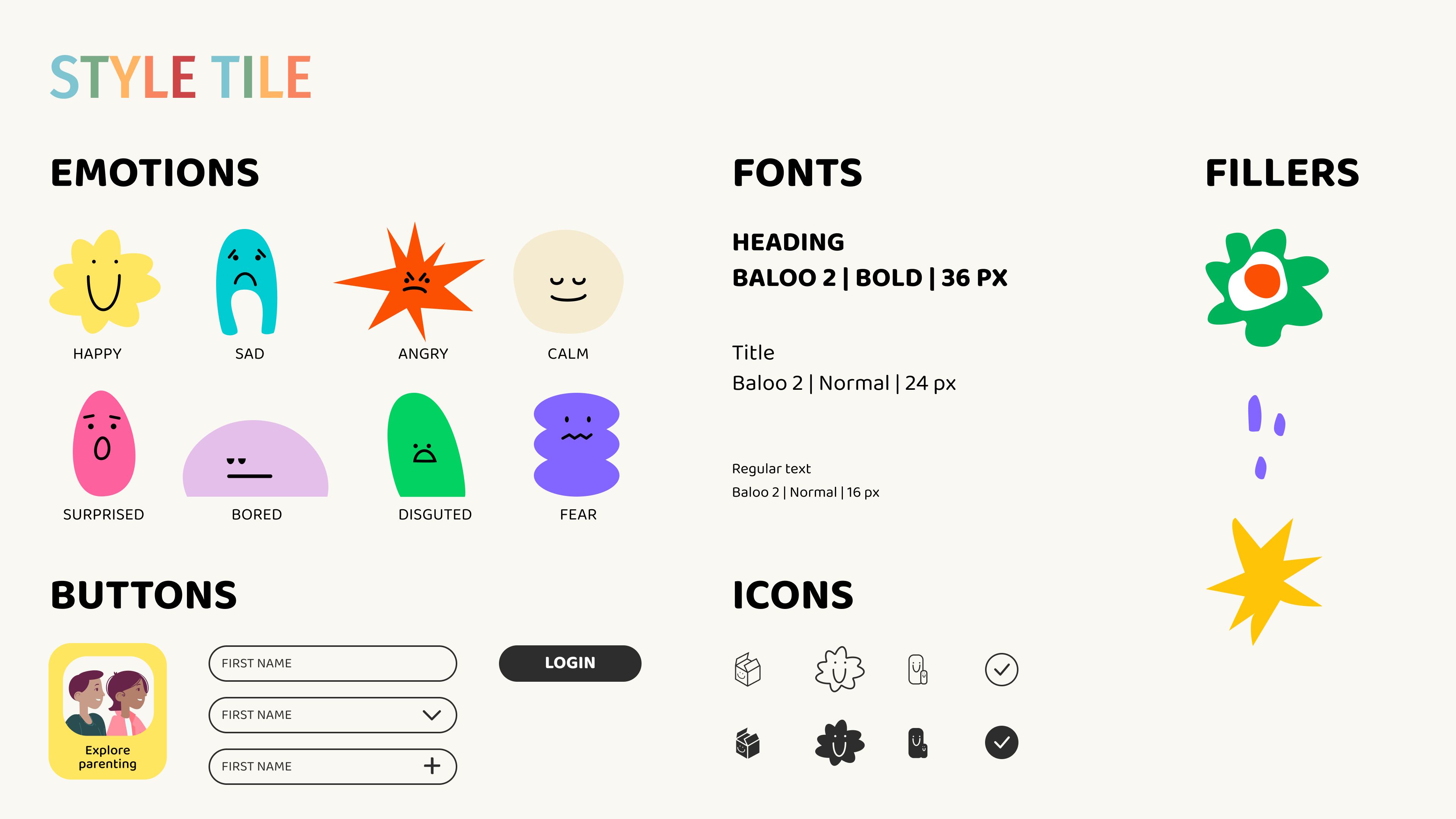
Lofi/mid wireframes
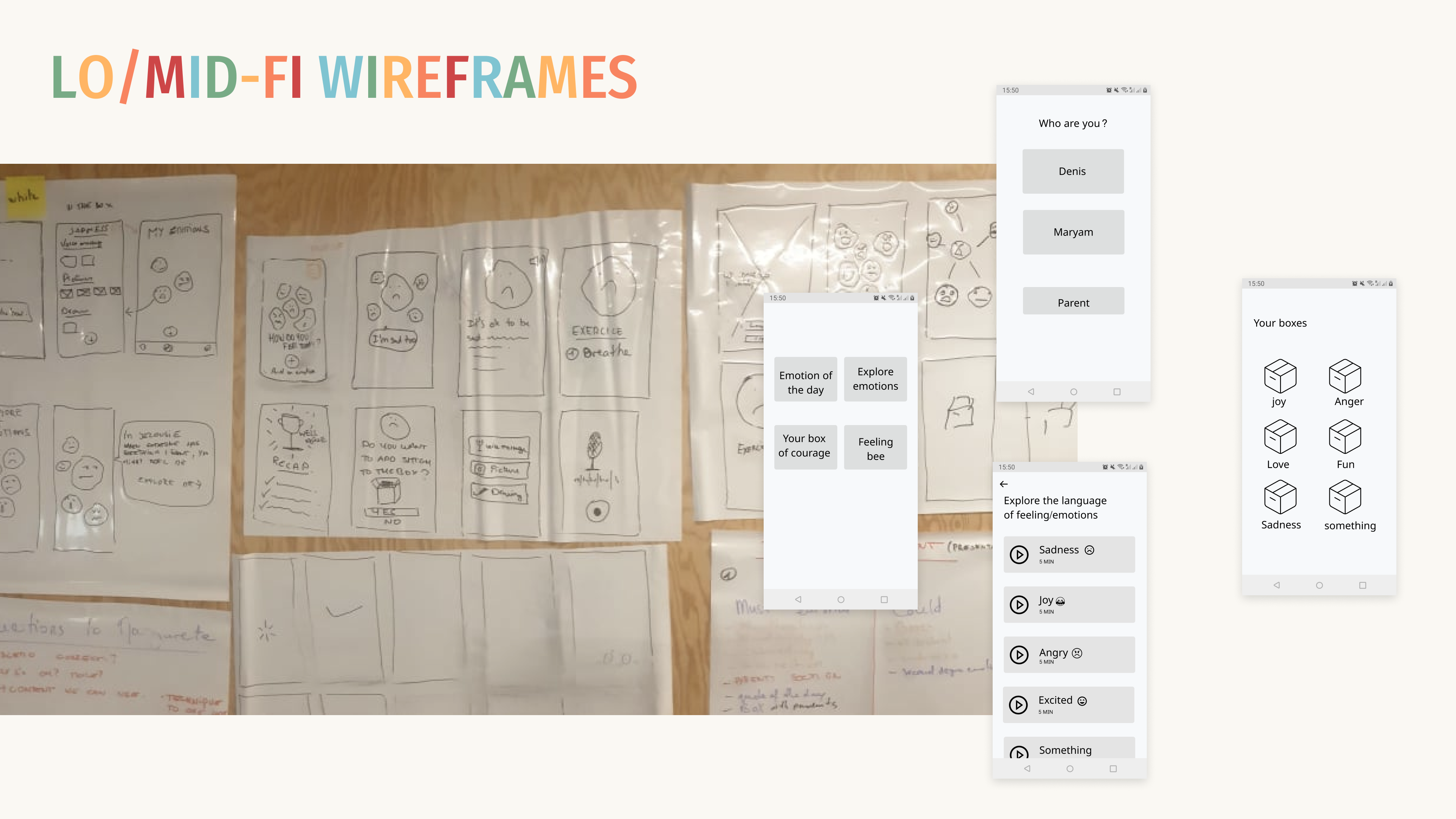
Hifi wireframes
